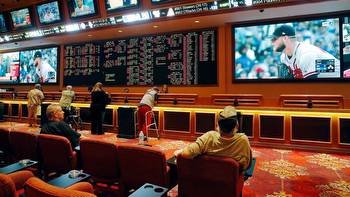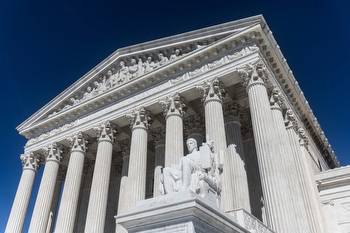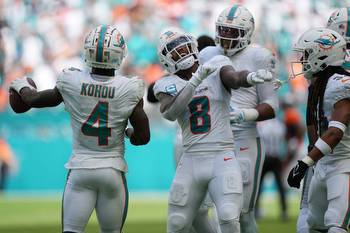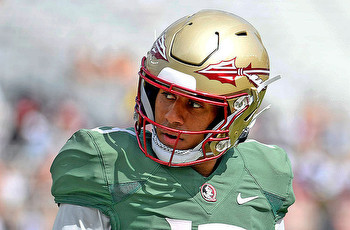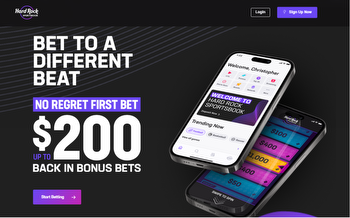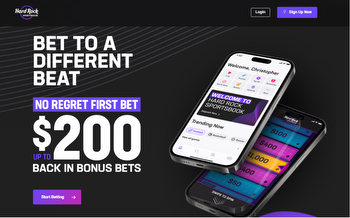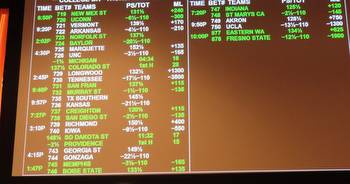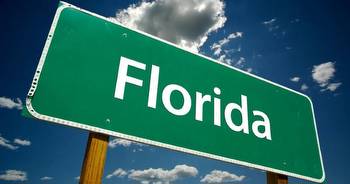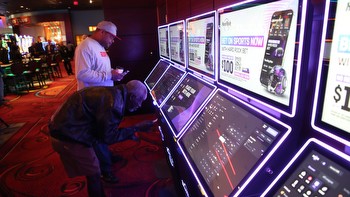Jackpot! Mobile sports betting may start soon in Florida

Florida residents and visitors may soon be able to bet on their favorite sports team from their cell phone.
The Seminole Tribe of Florida had a big win in court last week, which could mean a return of mobile betting after it was halted 2 years ago.
Keith Buckley is a business and sports management professor at Rollins College and also doubles as the school’s head soccer coach.
He said the Seminole Tribe will be partnering with the Hard Rock Casino to bring sports betting online in the sunshine state.
Listen to the full conversation in the player above.
Talia Blake: What's changed to make it possible for the Seminole Tribe to roll out online sports betting in the state?
Keith Buckley: So basically what happened was two years ago DeSantis enabled a bill, which enabled mobile sports betting, but it will be done through the Seminole Tribe. In return, the tribe was guaranteeing Florida over $2.5 billion in tax revenue. So then the West Flagler Law Firm — pretty much being backed by FanDuel and DraftKings, who do most of the legal mobile betting in the United States — basically appealed that decision and that law was basically prevented from coming into pass. Well, that was obviously appealed again. Then on June 30, the D.C. Court of Appeals overturned that decision. So as it stands right now, we can have legalized mobile betting through the Seminole Tribe. They have connected with the Hard Rock Casino and they have an app called the Hard Rock Sports Book, but they haven't actually put it out (in Florida) so it's not available. So even though it's legal right now, it's not available. However, the Agriculture Commissioner William Simpson, actually put a tweet that said, sports betting in Florida could be legal very soon. And the rumors are out there that by next weekend's NFL games, this act will be up and there'll be legalized mobile betting in Florida.
Talia Blake: So I want to touch on something you just said, which is 'as of now it's legal.' Is there anything that could still come in the way of online sports betting starting in Florida?
Keith Buckley: In terms of this being overturned, it's pretty much set. However, the law firm West Flagler could in fact take it to the Supreme Court. And no one's really sure if they are willing to do that. I think, again, it's backed by DraftKings and FanDuel, and do they want to go to the Supreme Court? So that's really where they're at right now. It would have to go to there in order to prevent legalized mobile betting.
Talia Blake: So I know, you said that there is an app on its way, but it's not out yet (in Florida). So can you tell me after this win in court for the Seminole Tribe, what will the future of sports betting and online sports betting look like here in Florida?
Keith Buckley: Yeah, I mean, it's pretty much going to look like it is in some of the other states. New Jersey is probably the one that they will be most consistent with. But, what's going to happen is once this app is up and running, then all sorts of different forms of gambling can be done to the standard of the NFL. Obviously, college football and college basketball is extremely popular. And Florida is obviously a little bit of a different market with all the tourists. Not only do we have a population of 22 million, but the tourists that come in, and obviously that gives them access to legalize gambling, specifically soccer because most of the games are at the different time zones or in the early morning. So, basically, gamblers get all day of sports to gamble on. Also cricket, even though it's not very popular in the United States, it's very popular in many countries, especially south southeast Asia, and that has a big gambling culture to it. So I think for Florida, not only are Floridians very interested in legalized betting, but you've also got the added international tourists, which will again, make this industry so lucrative. The expectation is, for each month in Florida, over $2 billion in bets will legally pass through.
Talia Blake: You said that they're expecting to see $2 billion coming through once online sports betting gets underway. So I know the state will be seeing the money but who really stands to gain from this? Will the money really stay in this state or will the profits from this industry kind of go elsewhere?
Keith Buckley: Well, I mean, those that really stand to profit is the Seminole Tribe because they will have a monopolistic betting platform, which is why DraftKings and FanDuels are so against it. So this is the initial legislation, but Seminole Tribe will definitely have a very strong position. Again, we don't know for sure what the legal numbers are. But, what it's telling us is that it's going to be a quite an avalanche of bets that are placed legally which the revenues will increase via the Hardrock Sportsbook. So the people that will really benefit will be the Seminole Tribe, and obviously indirectly the state will benefit because of the taxation. I don't see why it should go out of state though, there's no reason why that money should go out.
Talia Blake: Is there anything that people should know, top information they should know, as online sports betting starts to rollout here in Florida?
Keith Buckley: I mean, I think there's probably about eight or nine significant stakeholders in this. You've got the legislation and regulation. Obviously, there's the tribal gaming compacts, those that are already that the casinos are very wary of the newer form of gambling. Actually, the consumer protection, we're talking about gambling here. Obviously, the taxation from a state government and local government could be very significant. There is a social and public health impact here, the impact of of gambling, it can be very addictive, and what will we have in place, to figure out people that do suffer from addiction of gambling. There's also technological issues at stake, because there's so much money that we need to be able to prevent fraud, money laundering, and especially underage gambling. And then there's also the political and public opinion. There is a significant amount of the population that believes that gambling should not be legal. And then ultimately, there's federal regulation rules. So there's quite a significant amount of stakeholders involved in this. But, everybody right now sees the dollar signs, and there really are quite considerable.
Talia Blake: Yeah, it sounds like the process still need some flushing out. Speaking of consumer protection and fraud. Since this has been in conversation for about two years, has there been any talk about consumer protection? Or is there any protections in place for when people start online sports betting?
Keith Buckley: Yeah, well, I think that the same protections, that we do our banking and everything else, basically is same in line. I mean, Mississippi, Tennessee, Nevada, New Jersey, they all have legal, mobile sports betting. Some of them protection is very much in price there, and that they're dealing with the technological advances as we speak. But I just think for Florida, it's going to be a very significant hit. And will the system be able to assume so many people making bets and will be able to protect their data, and protects all their information?
Talia Blake: And just speaking of data and information, I'm curious if there's any worry about A.I. or bots doing online gambling? Is there any worry about that in the industry?
Keith Buckley: We worry about that in all aspects. And I think that's where the technology is coming to recognize what's a bot, what's an AI, and what's a 30 year old guy that just wants to bet on his NFL game on a Sunday afternoon? So you just got to be one step ahead of those that want to use this technology for the wrong reasons. So I think that's going to be really significant for the Hardrock Sports Book, I think that's something that they will put into place. And again, it comes down to money, there is so much money to be made, that they will have to have the toughest form of intellectual protection from outside sources that will be trying to either money launder, or put bets that don't exist in a sense, and obviously protect people's data, which is of the utmost.
Talia Blake: And one other thing you mentioned was the health impacts. Florida already lacks in mental health resources. I'm wondering if there's any talk or any conversations happening, whether it's from the casinos or from some of these other stakeholders about mental health services, if we do see gambling becoming more of a problem here in Florida?
Keith Buckley: At the moment, no. Everyone is quite silent on that. Obviously, there are some organizations that are very clear and very adamant that they think that this online gambling is going to be a very severe health impact on the community. But again, the stakeholders that are here that are going to make some serious money have been quite quiet on this. I think what will happen is, once it does become legal, and we do see the amount of money and revenues that are produced, there will be a strong public demand to actually innate for these organizations to provide help to those that are addicted to gambling and give them some form of support.
Talia Blake: Keith Buckley is a professor at Rollins College. Keith, thank you so much for talking with me today.














